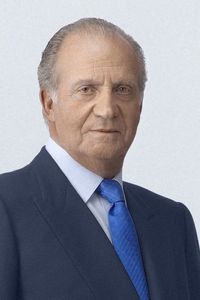Juan Carlos I, the last monarch to reign over Spain, held his position from 1975 until his voluntary relinquishment of the throne in 2014. Born Juan Carlos Alfonso Víctor María de Borbón y Borbón-Dos Sicilias on January 5, 1938, in Rome, Lazio, Italy, he was a product of his family's temporary exile.
Initially, Juan Carlos was expected to perpetuate the legacy of his predecessor, General Francisco Franco, who had ruled Spain with an iron fist. However, soon after ascending to the throne, Juan Carlos took a bold step by introducing reforms aimed at dismantling the Francoist regime and initiating the transition to democracy in Spain.
This daring move ultimately led to the successful passage of the Spanish Constitution of 1978 in a national referendum, which restored a constitutional monarchy to the country. The King's role in this process was instrumental, as he worked tirelessly to promote democracy and stability in Spain.
In a remarkable display of leadership, Juan Carlos played a pivotal part in foiling a coup attempt in 1981, which sought to restore the Francoist government in his name. This courageous act solidified his position as a champion of democracy and earned him widespread respect throughout the world.
Throughout his reign, Juan Carlos I maintained an impressive level of popularity, and in 2008, he was recognized as the most admired leader in all of Ibero-America. His dedication to democratic values, his commitment to the well-being of his people, and his unwavering leadership have left an indelible mark on Spanish history.
















